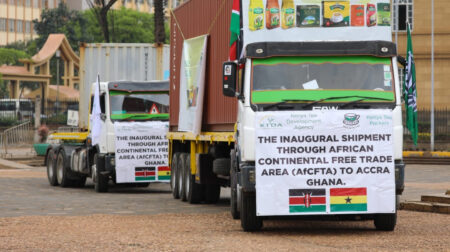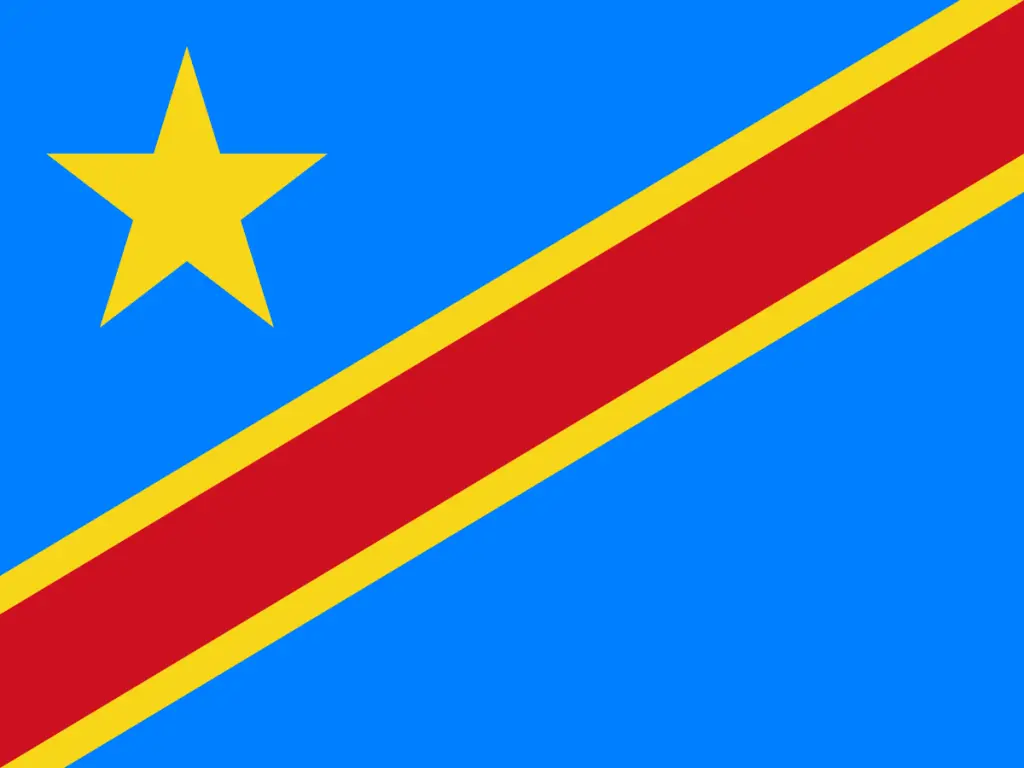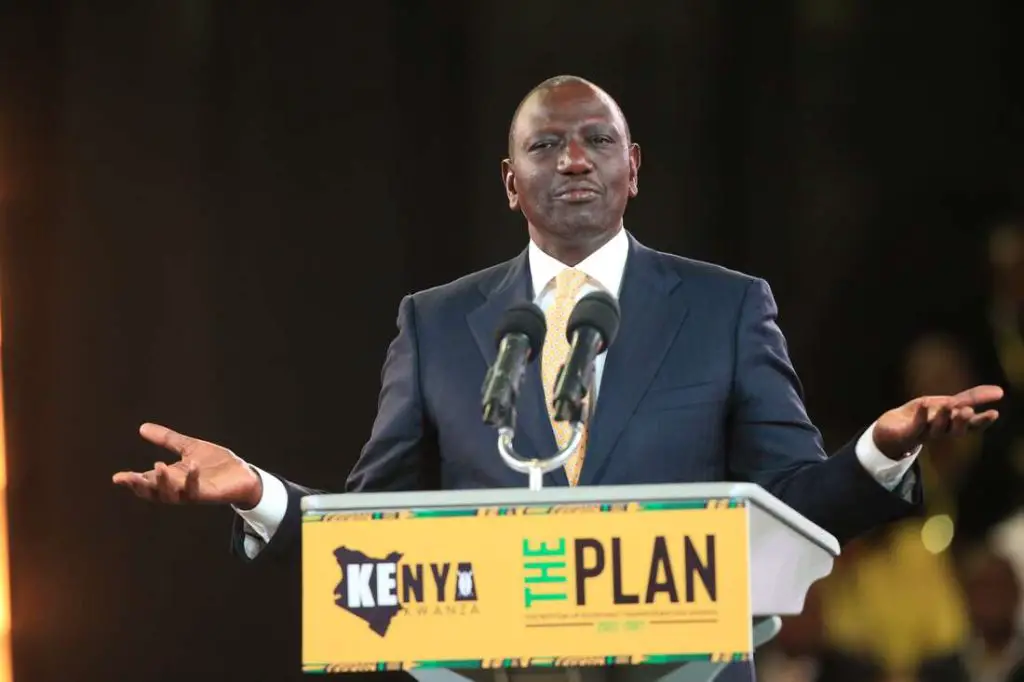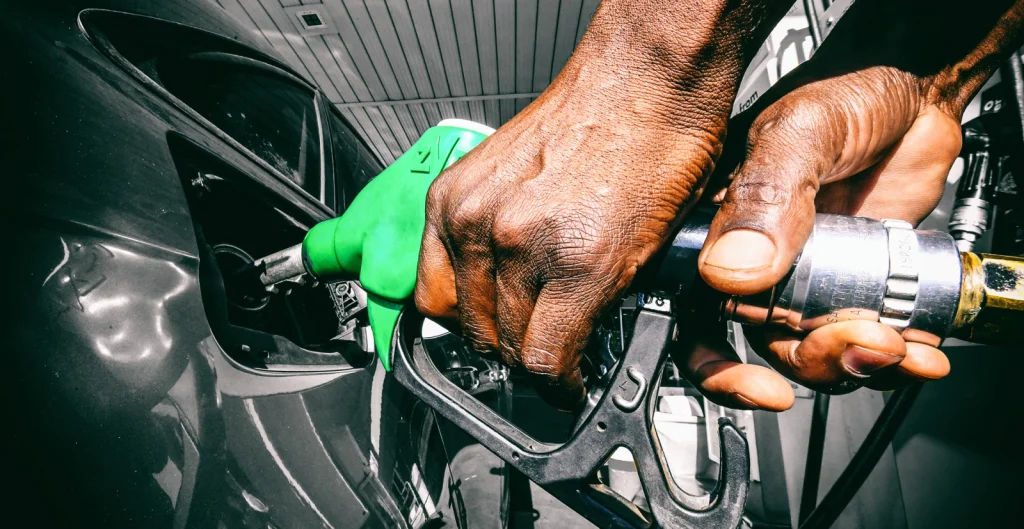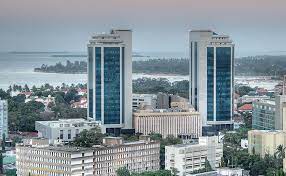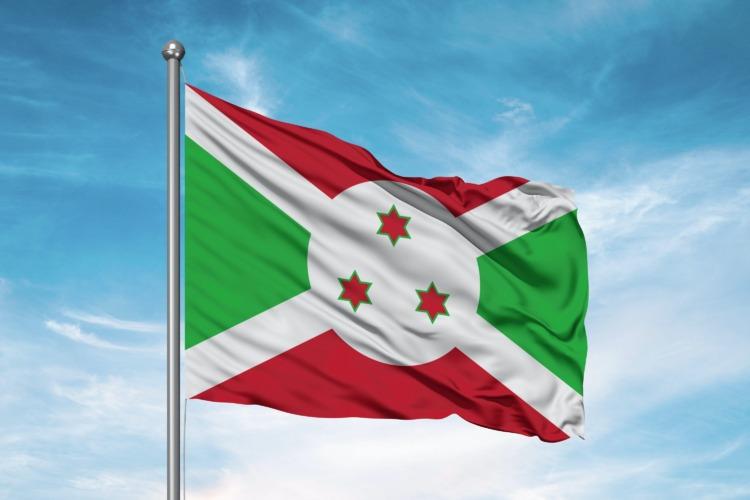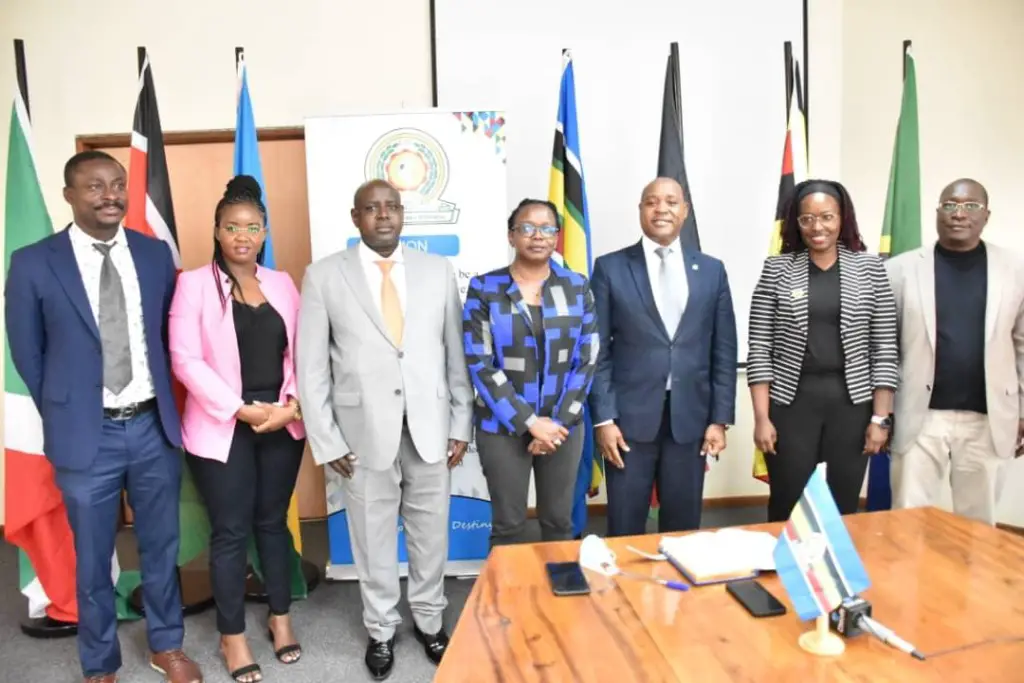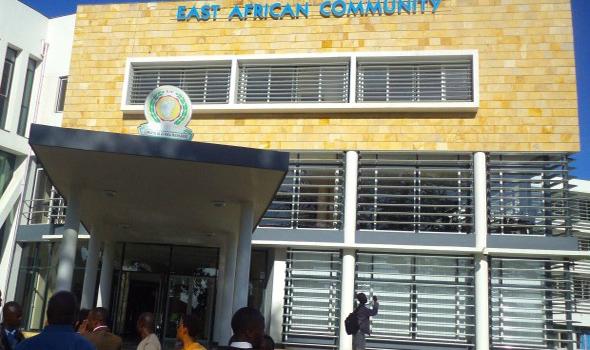- Africa’s new dawn: the rising role of digital and AI in agriculture
- Can Dangote Refinery Transform Africa Energy Ambition
- Gallup Survey: 80 per cent of Kenyan Workers Are Disengaged and Seek New Opportunities
- Madagascar Man Freed from 5KG Tumor After 15-Year Struggle
- How women in Africa are perceived and treated
- Sugar consumption in Kenya to Increase to 1.23 Million Tonnes
- Can Somalia and Turkey Oil deal Bring Change in Somaliland
- Remittances to Kenya dropped to $371.6 million in June, marking a six month low
Browsing: East African Community (EAC)
- Rwanda and Kenya who have already started trading through the agreement.
- Mid-February, Tanzania also said it was ready to trade under the agreement.
- The implementation of AfCFTA is projected to increase intra-African trade significantly, especially in manufacturing.
Uganda has expressed readiness to join Kenya, Tanzania and Rwanda in trading under the African Continental Free Trade Area (AfCFTA) as the continent slowly embraces the pact.
The implementation of AfCFTA is projected to increase intra-African trade significantly, especially in manufacturing.
The share of intra-Africa exports to total global exports is expected to increase in Tanzania by 28 per cent, Uganda by 29 per cent, Rwanda by 33 per cent and Kenya by 43 per cent.
“As Ugandan private sector, we are ready to trade under the AfCFTA Guided Trade Initiative and follow our counterparts from Rwanda and Kenya who have already started trading through the agreement,” East African Business Council (EABC) Vice …
- Usable foreign exchange were recorded at USD 6.56 billion last week, which is equivalent to 3.66 months of import cover.
- The shilling has continued to weaken against the US Dollar to a record 130 units to a dollar.
- The country has witnessed a dollar shortage in recent months.
The Kenyan government has put in place a number of measures to tame the country’s dwindling forex reserves and a biting dollar shortage that is being witnessed in the market.
The East African Community (EAC) economic powerhouse is also grappling with a weakening shilling that has dropped by about 12 per cent against the US dollar, the highest in two decades.
It has breached the 130 mark to a dollar, which is a record high. Importers are however accessing the dollar at Ksh145 to the dollar, which has impacted on the cost of imports and commodity prices.
Usable foreign exchange was recorded …
The challenge facing the EAC is not the lack of natural resources but the lack of high-tech industries. China is a perfect example of a country that transformed from an agricultural civilisation to an industrial one. More than 850 million individuals have been lifted out of poverty due to recent economic growth brought about by China’s industrialisation.
Without involvement in the fourth industrial revolution, the East African Community would never be able to escape its state of backwardness. Therefore, the DRC will catalyse industrial transformation inside the East African Community, Africa and the world.…
Kenya has not been left behind in the growth and development of technology. East Africa’s richest economy stands tall in the development of digital technology. However, a lot needs to be done, and the new administration has enough space to execute its plan regarding the advancement of the Kenyan digital space.…
- Fuel price rise across EAC
- National Assembly hears public outcry on the rising cost of living
- Governments working on solutions to lower fuel prices
Prices of essentials are increasing rapidly across the East Africa Community (EAC) from basic home needs like food and water to fuel and transportation, inflation has hit the region hard.
According to the Tanzania National Bureau of Statistics (NBS), the cost of food in Tanzania increased 6.60 percent in April of 2022 over the same month in the previous year.
NBS also contends that the country’s Annual Headline Inflation Rate for the month of April, 2022 increased to 3.8% from 3.6% recorded in March 2022.
According to NBS, Headline Inflation Rate measures inflation when all items in the fixed Consumer Price Index (CPI) basket are included.
“The increase of headline inflation explains that the speed of price change for commodities for the year ended April 2022 …
On the bright side, even with the credit growth slowdown, it remained positive, growth still maintained and upward trajectory. This is also for both domestic credit extended to the private sector as well as the central government too.
Growth is expected to improve as the global economy normalizes over time but meanwhile, the government, through the central bank is instituting measures to increase liquidity and reduce lending rates, which in turn is expected to allow the private sector to have increased access to credit.
As part of these fiscal measures, the BoT has already issued TShs1 trillion to commercial lenders to help beef up their lending capacity and to do so at lower interest rates. This in turn is meant to encourage the private sector to borrow and increase production.…
The Republic of Burundi has joined other East African Community (EAC) partner states to launch her own Trade Information Portal (TIP).
The TIP is meant to map out all of Burundi’s imports, exports and transit procedures, fees and time.
According to a press statement by EAC sent to newsrooms on Wednesday July 28, the next step after mapping will be to simplify and remove unnecessary and redundant bottlenecks.
Kenya, Rwanda, Tanzania and Uganda are the EAC partner states that have already launched and operationalised the Trade Information Portals (TIPs).
Burundi unveiled her own TIP on the internet on Tuesday July 27, 2021 as committed by the Burundi delegation during the 38th Meeting of the Sectoral Council on Trade, Industry, Finance and Investment held in Arusha on 28th May, 2021.
Trade Transparency
The publication of Trade Information is a good sign that Burundi is committed to facilitate trade by …
East African Business Council (EABC) and the East African Community (EAC) have held talks on strengthening the region’s private sector.
The new EABC Executive Director/CEO Mr. John Bosco Kalisa on Tuesday July 6, 2021 paid a courtesy call on the EAC Secretary-General Dr. Peter Mathuki at the EAC Headquarters in Arusha, Tanzania where private sector development and resolution of trade barriers were noted as top priorities for the East African Community (EAC).
Intra-EAC trade
The move is set to increase Intra-EAC trade and promote the region as an investment destination.
Dr. Mathuki noted that the private sector is key to fast-tracking regional integration and reiterated his commitment to collaborating with EABC to strengthen private sector development in the region.
“Following my engagements with EAC Heads of State over the past two months, a strong private sector and public sector partnership is the engine in driving the Community to prosperity,” Dr. …
Comprehensive Africa Agriculture Development Programme (CAADP)
The Republic of Burundi has a new president, it has taken steps to rebuild regional and international relations and its economy is starting to pull up, as such, leaders of the East African Community (EAC) are vouching in favor of the country and imploring the European Union, it is time to lift sanctions.d
The European Union (EU) imposed sanctions against the Republic of Burundi back in 2015 when the late President Pierre Nkurunziza extended his tenure in office seeking a third term. At that time, army officials in the country are reported to have attempted a coupe that did not succeed.
Speaking to the press mid this week, the Secretary-General of the East African Community (EAC), Hon. Dr. Peter Mathuki appealed to the European Union (EU) member states to lift sanctions against Burundi saying, ‘the country has opened a new page and was ready to move forward. (https://www.tnsdiamonds.com/) …





